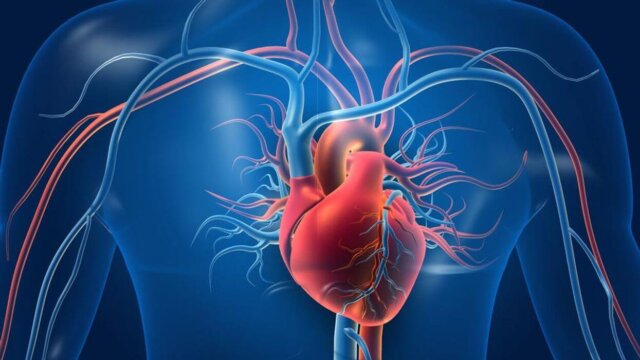FTC disclaimer: This post may contains affiliate links and we will be compensated if you click on a link and make a purchase.
In the health and fitness industry, we love to follow trends. While this generally holds true for exercise, we believe it is so, especially for dietary advice.
One such trend that has taken the industry by storm over the last few years is the resurgence of the high fat and low carbohydrate diet.
This includes the increasing popularity of ketogenic diets, paleo-style diets, and the Atkins diet.
As a result, we have seen some serious backlash, mostly through the pure and utter demonization of all carbohydrates.
More recently (in conjunction with the rising popularity of low carbohydrate diets), carbohydrates have been described as the root cause of obesity, metabolic diseases (such as diabetes), and cardiovascular disease.
But despite recommendations of low carb eating running rampant in the health and fitness industry, the dietary guidelines still recommend that we get approximately 50% of our daily energy intake from carbohydrates!
With such conflicting information, it can be tough to make a well-informed decision on dietary carbohydrates and their influence on health.
Here, we are going to understand carbohydrates and debunk the myth and confusion.
Moreover, it is not as black and white as what some people would make you believe when it comes to carbohydrates.
Understanding Carbohydrates
Carbohydrates are one of the key macro-nutrients that we obtain through diet (in conjunction with fats and protein).
Carbohydrates can be separated into three categories;
Sugars
These are short-chained carbohydrates found in foods (such as glucose and fructose).
These carbohydrates are broken down easily and absorbed into the bloodstream at a very rapid rate.
Starches
These are long chains of glucose molecules put together.
Starches are commonly found in vegetables and are broken down and absorbed into the bloodstream at a prolonged rate.
Fiber
Fiber is a form of carbohydrate found in whole foods that the body cannot digest, and as such, passes through the digestive system almost completely untouched.
Carbohydrates provide the body with energy. Once consumed, they are broken down into glucose, which is then moved to the blood, stored for later use in the muscle tissue and the liver.
Once those stores are full, glucose can also be converted to fat, where it is then stored in the body’s adipose tissue.
Whole and Refined Carbohydrates
Now, it is important to note that not all carbohydrates are equal.
Carbohydrates can be described as whole carbohydrates or refined carbohydrates, and the way they each interact with the body once consumed differ greatly.
Whole carbohydrates effectively describe those that come from whole food sources, such as vegetables, whole fruit, potatoes, sweet potatoes, legumes, and whole grains.
These foods contain mostly starchy carbohydrates, often with some fiber sprinkled in for good measure.
Refined carbohydrates consist mostly of sugars and are found in practically anything made in a factory (such as soft drinks, muesli bars, bread, pasta, fruit juices, and pastries).
Refined carbohydrates are digested at an incredibly rapid rate and, as such, cause a swift rise in insulin secretion after consumption (insulin is a hormone that causes the shuttling of glucose and fatty acids from the blood into the tissues where they are then stored).
This can trigger hunger cravings (despite only eating recently) and has shown strong associations with overeating.
Moreover, refined carbohydrates in the process of making are stripped of all nutrients.
As a result, it doesn’t provide any vitamins, minerals, or fiber essential for the healthy and efficient functioning of our body except in a fortified way.
The high consumption of refined carbohydrates has shown strong associations with several health issues.
It has shown below major health issues:
- Increased rates of obesity.
- Increase the incidence of metabolic disorders and diabetes
- An increased risk of cardiovascular disease.
This outlines a strong comparison with whole carbohydrates.
Whole carbohydrates contain an abundance of essential vitamins and minerals and are absorbed very slowly – causing a minor increase in insulin secretion.
Additionally, the high consumption of whole carbohydrates (with particular emphasis on fruits, vegetables, whole grains, and legumes) has demonstrated associations with improved metabolic health and a considerably lower risk of disease.
Carbohydrates and Energy
It is important to note that carbohydrates (and the glucose they provide the body with) are essential in providing energy used to sustain high-intensity exercise.
Also, considering that the brain uses glucose as its primary fuel source, it doesn’t make sense to limit our carbohydrate consumption.
Moreover, limiting whole carbohydrates will seriously inhibit our capacity for physical activity while also impeding our cognitive functioning.
Carbohydrates and Weight Gain
‘But you have been frequently bombarded with a warning that carbs cause weight gain???’
Just a quick note on carbohydrates intake and weight gain.
Yes, high levels of processed carbohydrates have shown strong associations with an increased incidence of obesity, AND yes, reducing carbohydrate intake MAY result in weight loss.
BUT that does not mean that carbohydrates are the cause of weight gain.
By cutting carbohydrates from our diet, it will cause a subsequent reduction in our daily energy intake.
It is due to the reduction of whole carbohydrates that causes weight gain and not specifically carbohydrates.
We as humans have been eating carbohydrates for thousands upon thousands of years, whereas the obesity epidemic that plagues different countries only started in the 1970s.
This most likely correlates with increased production (and consumption) of refined carbohydrates and a subsequent reduction in the consumption of whole carbohydrates.
It doesn’t make sense to blame relatively new health problems on things that have been occurring for thousands of years.
Conclusion
Carbohydrates are essential in providing the body with energy for exercise and can promote quality mental function.
Moreover, carbohydrates are NOT the sole cause of weight gain – rather, overeating is.
It is again important to note that not all carbohydrates are created equal, and we should be cautious of what types of carbohydrates we consume.
The consumption of refined carbohydrates has shown to promote overeating and has shown strong associations with increased rates of obesity, metabolic disease and diabetes, and cardiovascular disease.
Whole carbohydrates provide the body with essential nutrients, energy, and fiber, and as such, should make up the bulk of our carbohydrate consumption.
There is no issue with carbohydrate consumption, except for the type of carbohydrates you are consuming daily!








